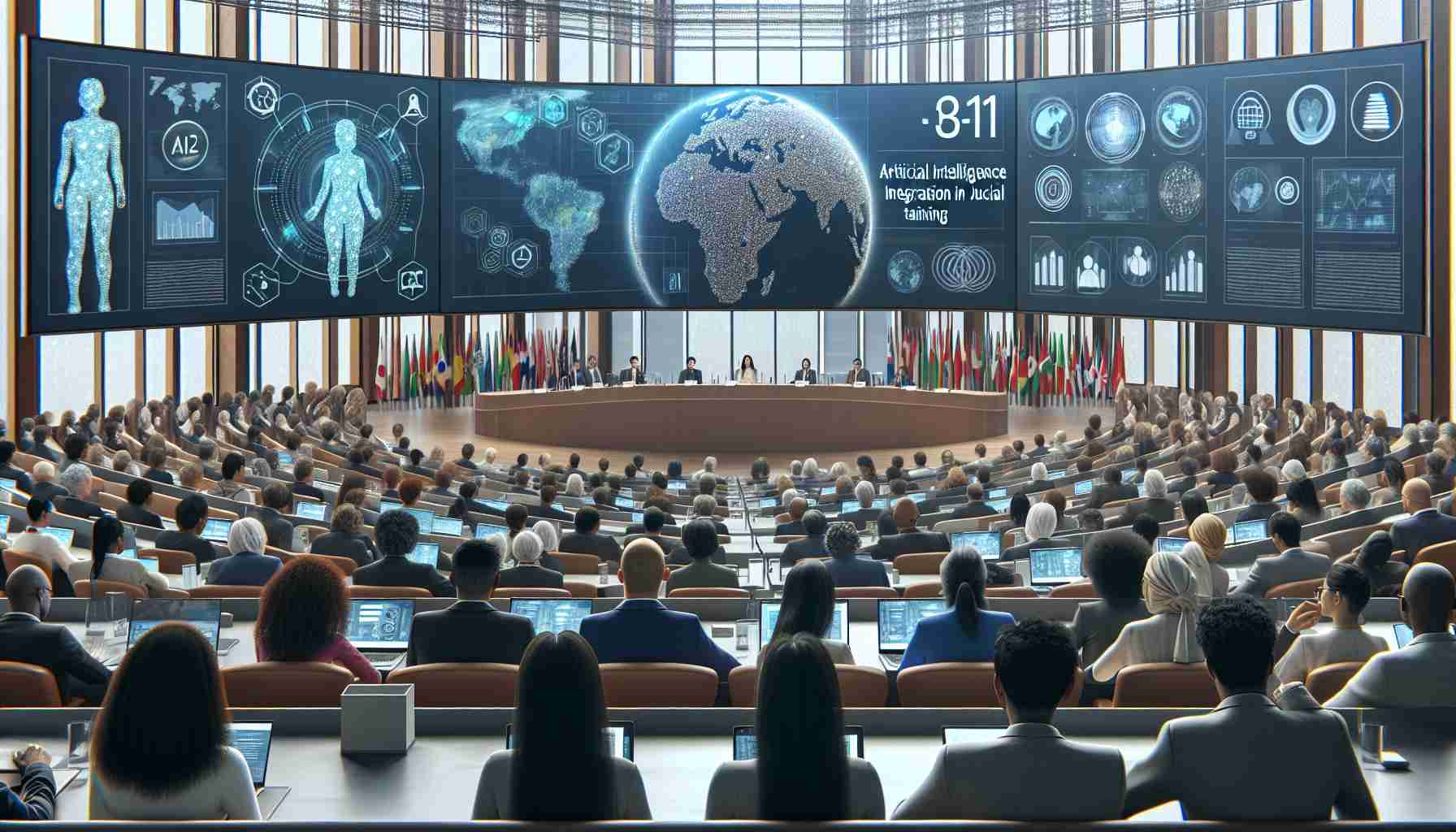Riyadh’s International Judicial Training Conference Highlights AI’s Role in Judicial Enhancements
The International Conference on Judicial Training recently concluded in Riyadh, having explored the incorporation of artificial intelligence (AI) in judicial training and development. Over two days, participants discussed the implications for judicial training amidst a digital transformation, with a focus on leveraging technology to enhance these processes.
Notably, the event attended by legal experts and judicial representatives, put an emphasis on both the opportunities and the challenges presented by the digital age. The conference underscored the potential of AI as a transformative tool in creating and delivering training content, aiming to pave the way for a future where digital advancements are seamlessly integrated within the legal sphere.
Justice Minister Advocates for Technological Advancements in Legal Training
In an opening speech, the Justice Minister Dr. Walid al-Samaani acknowledged the Kingdom’s significant developmental strides across various fields, including the judicial sector. Dr. al-Samaani outlined the Ministry of Justice’s commitment to enhancing the quality and efficacy of legal services and to raising the bar for the justice system through focused training and knowledge management initiatives.
Conference Workshops Navigate the Future of Judicial Training
Through interactive sessions and workshops, the conference navigated a series of topics pertaining to judicial training. It addressed harnessing technology for judicial purposes, the use of AI in training methodologies, and the creation of specialized training content. Additionally, discussions covered the cultural and social contexts affecting legal training and the methods of measuring training impact, highlighting the importance of cultural sensitivity and adaptations in legal education and practice.
Enhancing Access to Justice with AI
One of the crucial questions arising from the integration of AI into judicial training is: How can AI improve access to justice? AI can automate and streamline administrative tasks, reducing the time needed to process cases and thus speeding up the entire judicial process. This can contribute to improving access to justice by making the system more efficient and freeing up judicial officers to focus on decision-making.
Key Challenges and Controversies
The introduction of AI in the judicial system raises several challenges and controversies. One of the key challenges is the risk of bias in AI algorithms, which could perpetuate existing prejudices within judicial decisions. There are also concerns about transparency and the explainability of AI decisions, as well as the potential displacement of jobs within the legal sector.
Another important challenge is ensuring the security and privacy of data used within the AI systems, as the judicial sector often deals with sensitive information.
Advantages and Disadvantages
Integrating AI into judicial training offers several advantages, such as increased efficiency, consistency in training delivery, personalized learning experiences, and the potential for cost savings through automated processes. However, there are also disadvantages, including the high initial costs of developing and implementing AI systems, the need for continuous updates and maintenance, and potential resistance from legal professionals, who may be sceptical about the reliability and fairness of AI technologies.
Relevant Fact Added: The integration of AI within the judicial sector is part of a broader movement towards e-justice globally, where technology is seen as a means to modernize legal systems, improve efficiency, and provide better access to legal services for the general public.
For those interested in exploring related information from reputable sources on AI and the legal system, consider the following links:
– United Nations for international efforts on the rule of law and justice.
– Organisation for Economic Co-operation and Development (OECD) for policy guidance on AI.
– Artificial Lawyer for news on legal technology and AI advancements.
– MIT Technology Review for the latest research on AI and its societal impacts.
It is vital to ensure that any additional discussions and resources are accurate and relevant up to the stipulated knowledge cutoff date.

